On December 21, Mr. Hideki Ono, Chairman of the Sasakawa Foundation, Mr. Changming Takahashi, Honorary Professor of Kobe University, Mr. Kohiko Masang, Chief Editor of Iwabo Bookstore, Mr. Yuzhan, Head of the Sasakawa Japan China Friendship Fund Office, and Mr. Shang Zao, a researcher, visited the Japan Research Center of Shanghai Jiaotong University, Ji Weidong, Director of the Japan Research Center, Cai Yuping, Deputy Director, Li Fang, President of Shanghai Jiaotong University Press, Li Guangliang, Chief Editor Editor Xing Dandan and others received guests and held talks in the conference room on the second floor of the Japan Research Center.
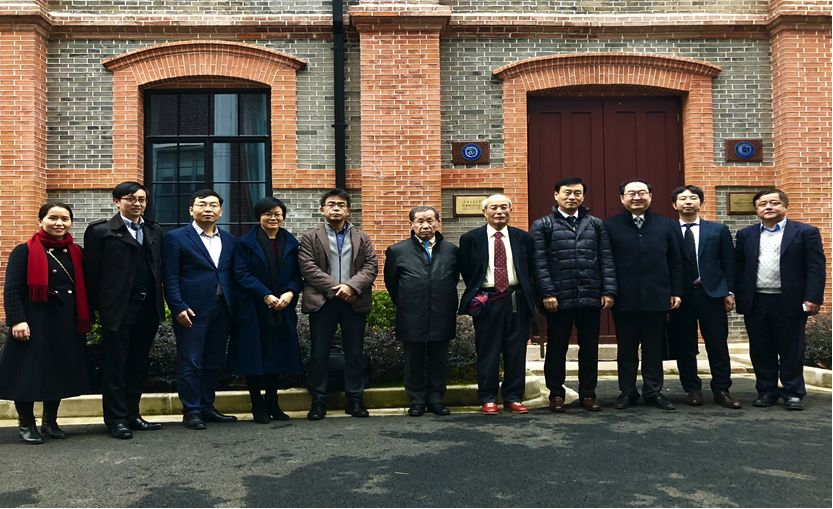
Ji Weidong first welcomed the visit of Ono Xiu Yixing. He reviewed the past of knowing and cooperating with Mr. Yu Zhan and Mr. Kohiko Masang while studying and teaching in Japan, and thanked Mr. Zhan for his visit in June. Later, he explained the historical origin of Shanghai Jiaotong University and the Japanese publishing industry, and introduced the basic situation and activities of the Japanese Research Center. He pointed out that the Japan Research Center will promote China Japan exchanges from the following three aspects: first, promote Shanghai style Japanese research; Second, promote the high-end dialogue between China and Japan in the field of economy and law; Third, promote public diplomacy in East Asia. At the same time, he proposed to strengthen cooperation with Shanghai Jiaotong University Press and introduce more high-end academic works from Japan to strengthen academic exchanges between the two countries. He also introduced three aspects of the research work of the Center. First, he discussed the legal and political system building of China and Japan; Second, we should study the maintenance and development of the global trade system and the international legal order in depth, and learn from Japan's experience to actively carry out "judicial diplomacy" activities; The third is to deeply explore the East Asian Community thought, and explore many social issues such as aging and economic recovery with reference to Japanese society. He said that he hoped to have more exchanges with the Japanese publishing industry, to jointly translate and publish academic books in more fields, and to express his sincere thanks to Hiroshi Sasakawa and the consortium that planned the event.
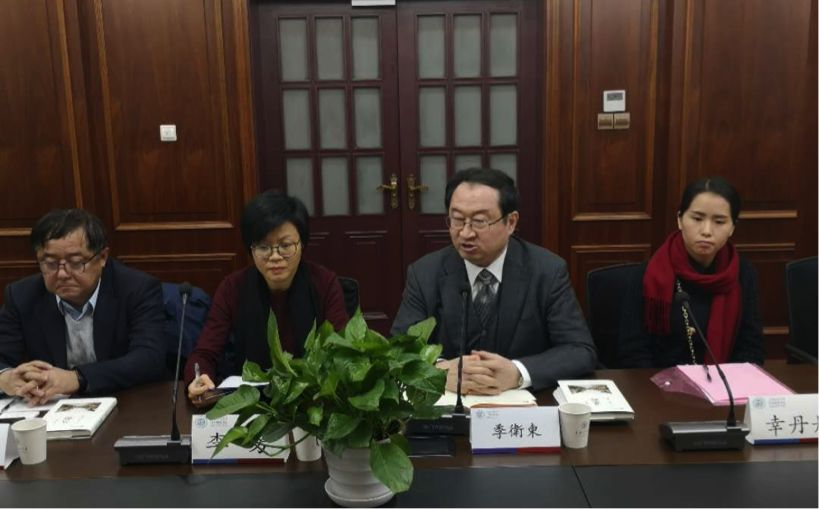
Ji Weidong, Director of Japan Research Center of Shanghai Jiaotong University, made a speech
Ohno expressed his gratitude to Director Ji Weidong for his enthusiasm in promoting China Japan cooperation. He pointed out that the Sasakawa Pinghe Consortium was established 32 years ago and has always taken promoting world peace and development as its goal, and the peaceful development of China and Japan is the focus area of the consortium's work. The consortium established a special fund in 1989 to focus on cultural exchange projects with China and promote mutual understanding between China and Japan. The consortium launched the project of translating Japanese books nine years ago, hoping to translate and publish Japanese books to China, directly convey research results in various fields to Chinese readers, and help Chinese readers form an objective understanding of Japan. At the beginning of the project, the consortium planned to translate 108 books, which was strongly supported by numerous publishers from both China and Japan, including Shanghai Jiaotong University Press and Japan Iwabo Press. At the same time, he said that this year marks the 40th anniversary of the conclusion of the Sino Japanese peace and friendship treaty. In the past 40 years, China and Japan have overcome many difficulties to improve the current situation, but there are still many problems to be solved between China and Japan. He hoped to strengthen cooperation and exchanges with the Japan Research Center of Shanghai Jiaotong University in the future and make a contribution to the continued promotion of China Japan relations.
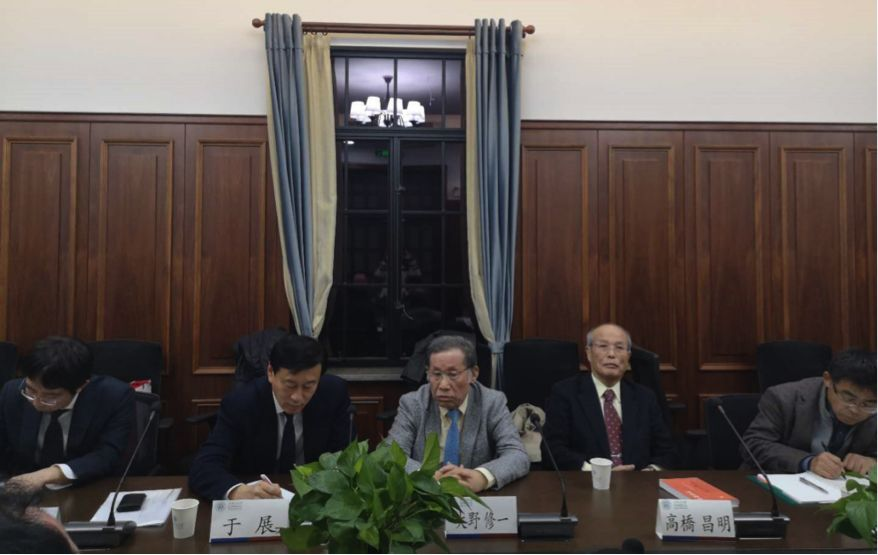
Hiroshi Sasakawa, director of the consortium, made a speech
Li Fang introduced that Shanghai Jiaotong University and Shanghai Jiaotong University Press have a long history with the Japanese research community. As early as 1898, Mr. Sheng Xuanhuai founded the Nanyang Public School Translation Academy and compiled a large number of Japanese books. This year is the 120th anniversary of the founding of the Academy. Shanghai Jiao Tong University Press has devoted itself to publishing academic books in the past 10 years, and has made remarkable achievements in spreading Chinese culture through the China Publishing Fund and other projects. In recent years, under the background of double first-class construction, the publishing house and various scientific research institutions of Jiaotong University have more opportunities to connect discipline resources, and plan to jointly establish the Yuanji Translation Academy with the School of Foreign Languages to engage in cultural communication and publishing. She mentioned that Shanghai Jiao Tong University Press is very honored to be a cooperative publisher of the "Reading Japanese Books" series, and hopes to have more cooperation opportunities with the Japan Research Center to distribute books in China's academic field to Japan, making contributions to the exchanges between the academic and cultural circles of the two countries.
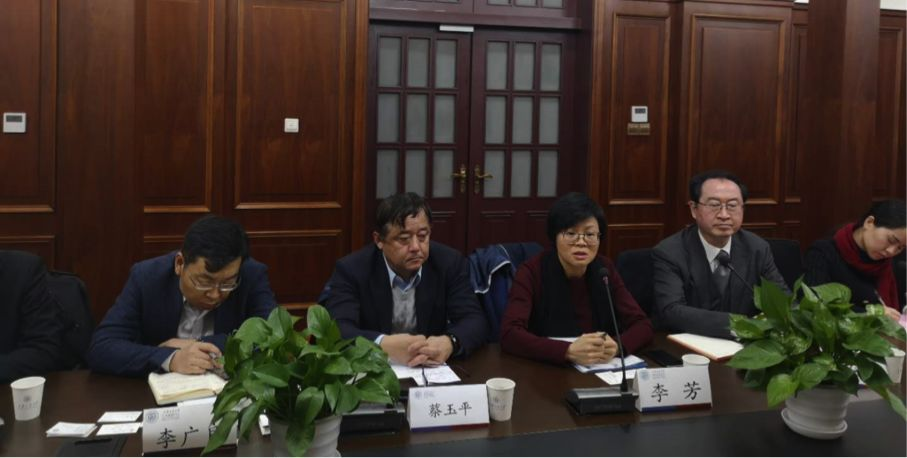
Speech by Li Fang, President of Shanghai Jiaotong University Press
Takahashi first expressed his thanks for the cooperation with Shanghai Jiaotong University Press. He introduced a common problem in Japanese history: Japanese history research and world history research are parallel, and there is little communication between the two sides. This leads to the phenomenon that Japanese history does not include world history and world history does not involve Japanese history in school education. Therefore, if students choose Japanese history in school, they will not understand the history of the world, especially China, or the historical disputes between China, Japan, and South Korea. In order to deal with this problem, they proposed to combine Japanese history and world history in high school teaching. This opinion has been adopted by the government and will be implemented in 2022. At the same time, however, a new problem has arisen. Since the Meiji Restoration, Japan has separated the teaching of Japanese history and world history. Because most teachers themselves lack the perspective of juxtaposing the two, there is still doubt whether the teachers who undertake the teaching task are able to teach these two histories at the same time. Therefore, the current new attempt may face the risk of failure. However, both scholars and teachers should try hard to enable future generations to capture Japanese history in the framework of world history, view Japan and the world comprehensively, and understand the complex historical problems between China, Japan, Japan and Korea. He pointed out that the exchanges between China and Japan should not be limited to high-level academic exchanges, but should also be extended to the exchanges between ordinary people. It is necessary to transmit the academic and educational situation of Japan to the Chinese people, and at the same time let Japanese young people strengthen their understanding of China。
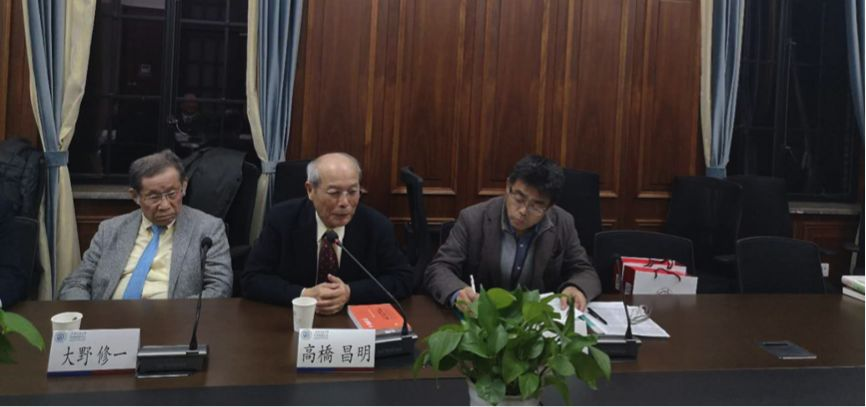
Speech by Takahashi Changming, Honorary Professor of Kobe University
Kohiko Machang first congratulated Director Ji Weidong on the establishment of the Japan Research Center. He mentioned that Yanbo Bookstore is a bookstore with 105 years of history. Sheng Xuanhuai, the founder of Nanyang Public School Translation Academy, the predecessor of Shanghai Jiaotong University Press, paid great attention to books published in Japan, including books of Yanbo Bookstore. A total of 108 books have been published in the "Reading Japanese Books" series, 25 of which were published by Yanbo Publishing House. He said that as a publisher, he felt that the Chinese industry was paying more attention to Japanese publishing, especially in animation, life books and children's books. But at the same time, the number of Chinese books going out is very small, and the attention is not high. China's impression of Japan has improved significantly, while the opinion polls show that the Japanese people's impression of China has not improved much. This may also be because there are not many books available for reference, resulting in the "imbalance of knowledge trade". As a publisher, he felt that he should take some responsibility, especially the publishing of Yanbo Bookstore focused on academic aspects, and he had the responsibility to improve the books published in China to Japan from life to academic level. In addition, Mr. Machang also pointed out that the learning from Japanese experience mentioned by Director Ji Weidong should be comprehensive, including learning from both successful and failed experiences. Iwabo Publishing House has published a series of books on Japan's social development experience and lessons, but has not translated them. He said that he had listed the corresponding bibliography and hoped that it could be handed over to the Japan Research Center of Shanghai Jiaotong University to translate and publish the books through the joint efforts of both sides, so as to make joint contributions to promoting exchanges and cooperation between the two sides.
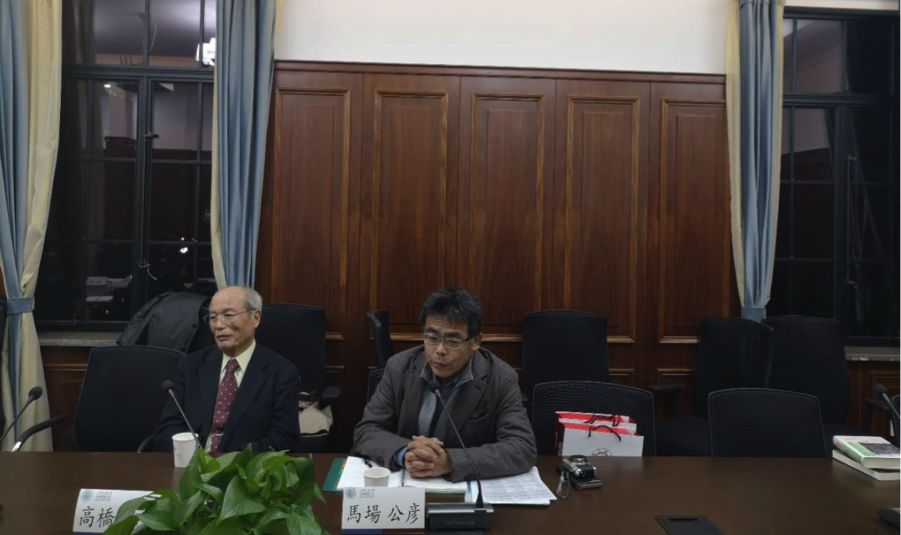
Mr. Gongyan, Chief Editor of Yanbo Bookstore, made a speech